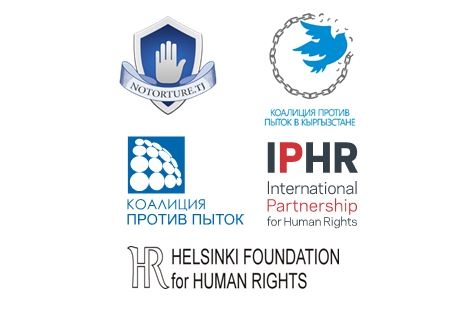Freedom from Torture
Civil Society Coalition against Torture and impunity in Tajikistan

The NGO Coalitions against Torture in Kazakhstan, Kyrgyzstan and Tajikistan, the Helsinki Foundation for Human Rights (Poland), and International Partnership for Human Rights (Belgium) today welcomed recent legal amendments adopted by the Tajikistani government, which, if implemented, could significantly improve safeguards against torture and ill-treatment for detainees.
On 14 May 2016, President Emomali Rahmon signed legislation introducing amendments to the Criminal Procedural Code (CPC) and the Law “Detention procedures and conditions for suspects, accused persons and defendants” (further “Law on detention procedures”).
Improvements to legislation include amendments to the Law on detention procedures which reduce the maximum length of time that a person can be held in a temporary detention facility (IVS) to three days. Amendments also provide for improved detention registration procedures and the rights to promptly inform family members and legal counsel.
Changes to the CPC stipulate that detention starts from the moment of de-facto deprivation of liberty; that a detainee can have confidential meetings with a lawyer from the moment of factual detention, including before interrogations begin. Arresting officers will now be obliged to verbally inform detainees of their rights at the moment of deprivation of liberty and the identity of detaining officers has to be recorded in the detention protocol, which must be drawn up within three hours of a person arriving at a police station. The amendments also stipulate that a medical examination is obligatory prior to placing a suspect in a temporary detention facility, to determine the person’s state of health. A lawyer can request a medical examination by an independent expert. Once the detention protocol and medical examination are completed the detainee is to be directly transferred to the IVS.
These recent legislative changes address key obstacles to prevention of torture and ill-treatment in the criminal justice system in Tajikistan, where the NGO Coalition against Torture in Tajikistan registered 45 new complaints of torture and other ill-treatment in 2015 and 37 to date in 2016. Many victims refrain from lodging complaints about torture or ill-treatment for fear of reprisals and/or because they do not believe it is possible to obtain justice. To date the majority of cases of torture and other ill-treatment have concerned suspects in the early hours of detention.
The legislative amendments also address the courts. Article 88 of the CPC relating to the inadmissibility of evidence obtained under torture states that factual information about the use of torture or other ill-treatment will be considered as proof regardless of whether a complaint or appeal about torture has been lodged by the detainee’s defence lawyer.
These key changes reflect recommendations made by the UN Committee against Torture in November 2012, recommendations by the Special Rapporteur on Torture Juan Mendez in February 2014 and February 2015. In 2013 the UN Human Rights Committee designated the issue of safeguards in the early hours of detention as a matter of principle concern, and when considering Tajikistan’s follow-up report in 2015 ruled that their previous recommendations had not been implemented sufficiently. Tajikistan will soon review recommendations made by under the UN Human Rights Council Universal Periodic Review which include a recommendation from Norway ensure to afford fundamental safeguards from the outset of deprivation of liberty (8.37).
Recommendations to the Tajikistani authorities: